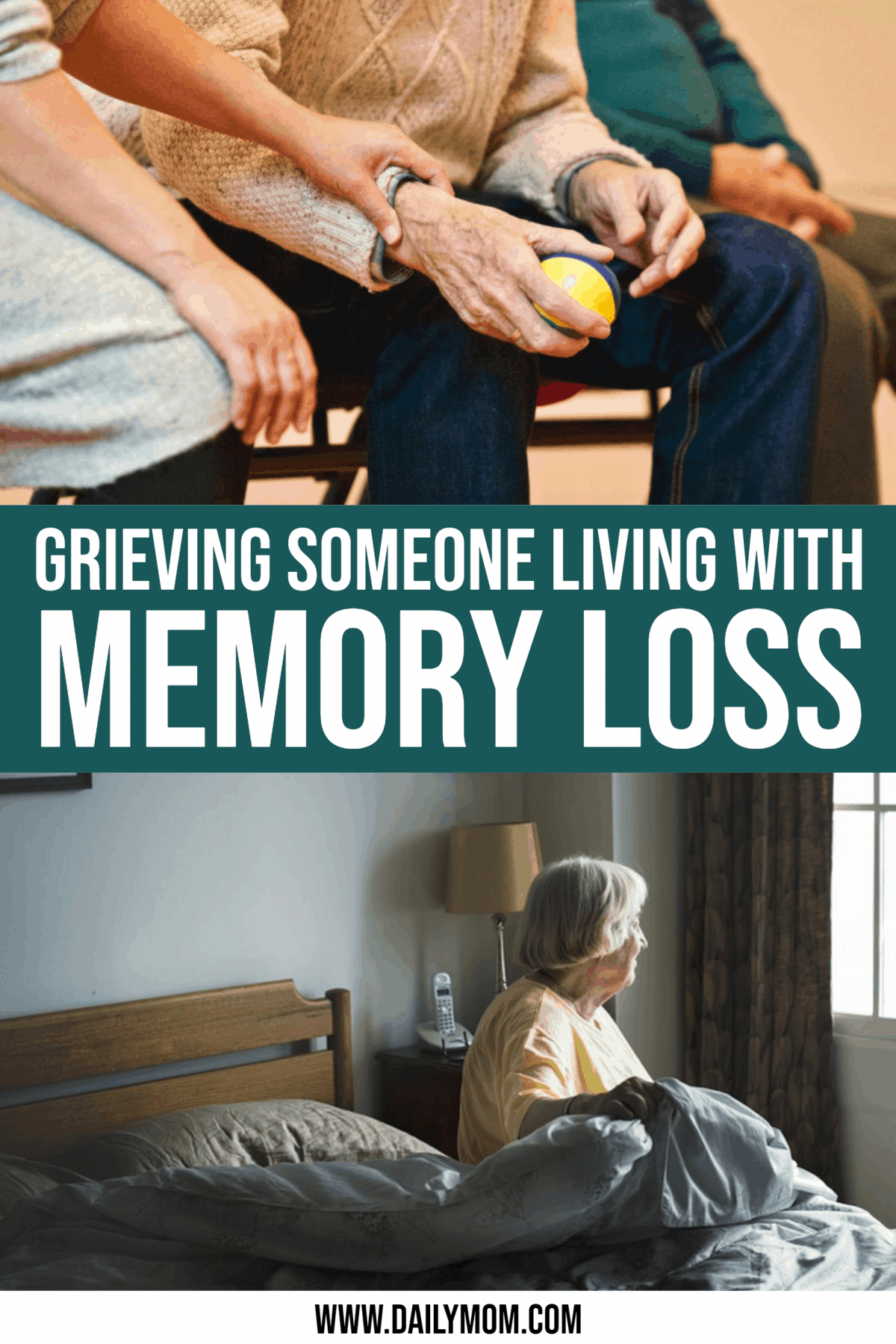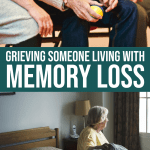Her memory loss started several years ago. She would lose track of her words mid-sentence. She would forget what we were discussing. She would even forget entire conversations. We blamed it on her age. After all, Grandma was in her early 80s and was never the type to steer the conversation. She had a peaceful presence and a Southern sass that allowed her face to show you what her words wouldn’t. But then, her memory loss stole the memory of my son’s name. She lost the knowledge that he is a boy. My son, who she held 2 years ago on the day of his birth.

Fast-forward to today, and she couldn’t remember who I was. I say “was” because who I am does not matter right now. I say “was” because of a life’s worth of soft hugs that have now succumbed to a disease. I say “was” because the sleepy bedtime stories and funny voices she would use only exist for one of us now. Particles of her story and mine that have dissolved into a mind that has lost these for her. To her, I “was” her granddaughter. Now, because of the memory loss caused by dementia, I am a stranger.
Read More: How To Help A Grieving Friend
Memory Loss Is A Thief
Dementia doesn’t care if you were a good person or a bad person. It doesn’t pick and choose the memories or basic life skills that it erases. It is easy to personify as someone who is evil. It doesn’t have pity; it is like a heartless thief that takes people away from you but leaves a shadow of the person they once were. This thief is slow and leaves heartache in the wake of its work in the day-to-day small losses that chip away at a family’s mind and soul.
Of course, we know that dementia or memory loss isn’t evil and that our loved one is not under attack for some reason. It just happened. The person you knew and loved is no longer the person they once were. The person suffering from dementia or memory loss may or may not know this, but it is painfully, heartbreakingly evident to those around them. This is when the grieving process starts, and it is important to acknowledge this and own this feeling.

It is okay to grieve relationships, traditions, and memories. It is okay to feel sadness or anger at the fact that they cannot remember who you are or why you are there. Julie Fleming, the author of “Grieving The Living” refers to this feeling as “anticipatory grief”, and those who fill the role of caregiver especially know this to be all too true. It is a complex grieving process, but it is important that each person who is embarking on this journey owns their grief and gives themself permission to experience it.
Memory Loss And Guilt
Grieving someone who is still physically present can inspire feelings of guilt in a person who loves and/or cares for them. We are so affected, but we aren’t even the ones who are sick. Thoughts such as “I should just appreciate the fact that this person I love is still with us”, or “They are still here, so I should toughen up and pretend everything is okay.” On the contrary, these thoughts do more damage than good when it comes to dealing with memory loss.
In fact, owning your grief and giving yourself permission to lean into this process is liberating, healthy, and normal. The Alzheimer’s Association outlines a grieving process that one may experience and states that those who love someone with memory loss caused by dementia/Alzheimer’s should “Let yourself be as sad as you want, and accept feelings of guilt because they are normal. Work through your anger and frustration. These are healthy emotions. Know that it is common to feel conflicting emotions. It is okay to feel love and anger at the same time.”
Memory Loss: Moving Forward

We know that it is normal and healthy to experience anticipatory grief, and once we own our process, we can start the next phase of moving forward. Simply accepting the fact that this is “normal” doesn’t magically do the trick and take steps for you, though. If you have accepted this responsibility of moving in a healthy direction during your grieving process, here are some helpful tips to use as you develop your plan of staying mentally healthy and taking care of yourself.
- Remind yourself that you will experience shocking anticipatory grief more than once as your loved one copes with this disease. Keeping this at the front of your mind will lessen the shock value and help you deal with your emotions in a healthier way.
- Name your emotions. Identifying your grief as it presents itself will help you process it. For example, if you are feeling angry, then maybe a long walk, exercising, or journaling your experiences will help you process your emotions.
- Speak to someone you can trust with your emotions, and vent to. This could be a friend, co-worker, or even a therapist.
- Realize that you are not alone. Find a support group and give yourself permission to change your scenery and take some time for yourself.
- Take care of yourself. Do things that you enjoy and that spark happiness in your life. You cannot pour from an empty vessel.
Read More: The Pros And Cons Of Joining An Online Support Group
Whether you are a full-time caregiver, or a family member of someone who is living with memory loss caused by dementia or Alzheimer’s, your feelings of grief, anger, sadness, and guilt are real and valid. There are resources available to help process these feelings and learn to live with them. It is a beautiful responsibility to cherish the memories that have been removed from someone else. It is important to hold on to the memories that you have cherished for so long because they are priceless gifts that require delicate and loving care.
WANT TO READ MORE?
Check out this article on an Exploration Of Grief Therapy.









































